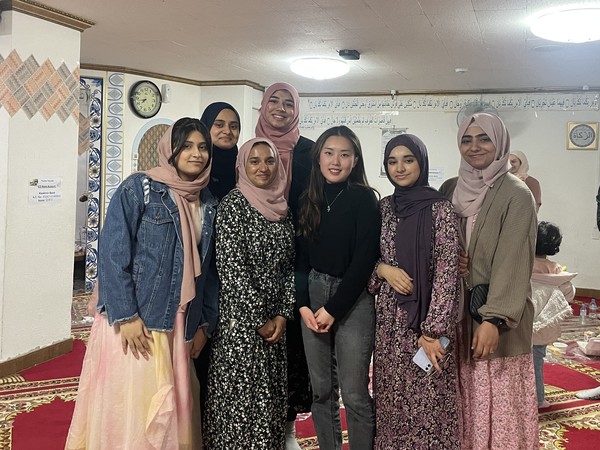Ramadan, the ninth month of the Islamic calendar, is the holy month of fasting, prayer, reflection and community. In this Spotlight, we explore how Ramadan is observed in our community and worldwide.
Located in a familiar corner of Gung-dong is the Islamic Center of Daejeon (ICD), where many Muslim students at KAIST gather for prayer and community gathering. The Muslim Students Association (MSA) at KAIST has close relations with the ICD, which is the largest mosque in Daejeon. The ICD generously invited The KAIST Herald to join the community-arranged Iftar and learn about the significance of Ramadan and the values of Islam.
Community Iftar at the ICD began around sunset on Saturday evening. Women and children gathered on one floor and men in others. Water and dates were first served to break fast, then Maghrib prayer was performed for a few minutes. Shortly afterwards, delicious meals prepared by the Arabic and Indonesian community were served. After Iftar, there was a break for discussion and reciting the Quran before Ishaa and Taraweeh prayer, during which we had an opportunity to speak with the Imam and manager of ICD.

“Assalam alaykom,” greeted Dr. Ehsanullah, the Imam of the Mosque, followed by “Annyeonghaseyo” in his fluent Korean. He remarked on how both greetings are similar in meaning “may peace be with you” — and how it goes to show the focus on community in both cultures. He then explained the significance of Ramadan. Ramadan is not a month of deprivation, but rather purification and re-charging. “Ramadan is a special time when we become closer to God and our community. It is the time for spiritual growth and serving those in need.”
“Continuing the work of God does not come without challenges, but we feel blessed to maintain our community here,” said Dr. Ehsanullah. Since its establishment in 2006, the ICD has been run through voluntary donation. In 2011, the current building was purchased, and now, it serves as a home away from home for over 400 members. Besides holding congregation prayers and organizing weekly Iftar during Ramadan, the ICD is the center point of community service. From helping new immigrants find places to live to providing opportunities for them to foster new connections, the ICD’s work reaches far and wide. The ICD organizes Quran classes for children, sells halal food, and hosts seminars about Islam faith. Dr. Ehsanullah noted the similarities between Islam and Christianity, emphasizing the importance of mutual understanding and coexistence. “We are more alike than different,” he said.
As many members of the ICD are students at KAIST, Chungnam University, and other universities in Daejeon, ICD is also “a place of relief” where they can take refuge from stress of academics and career planning. Moreover, they can make new friends and bond over similar concerns and hardships. Mr. Saed, the president of ICD, described the place as a “friendship factory”: a place where all Muslims and non-Muslims, regardless of their nationality, ethnicity, occupation come together. “Here, we are all brothers and sisters,” Mr. Saed remarked.
Dr. Ehsanullah said that he finds the local community in Daejeon to be tolerant and inclusive overall. The ICD maintains good relations with the Korean government, where the assistance from the immigration office, local police, and Yuseong district office eases the burden off of the ICD’s work. The ICD also frequently hosts community gatherings for multicultural foreigners and Koreans to promote friendship and harmony. There still is room for improvement for a better understanding of different cultures and community integration. Dr. Ehsanullah wishes to spread the message that Islam is a religion of peace, and that the extremists portrayed in the media are not following the true teachings of Islam. The ICD is open for everyone and welcomes anyone who wants to learn about Islam. As it always has been, the ICD will serve as the bridge for intercultural understanding. The spirit of Ramadan — generosity and compassion — was felt strongly during the Iftar at the ICD.

